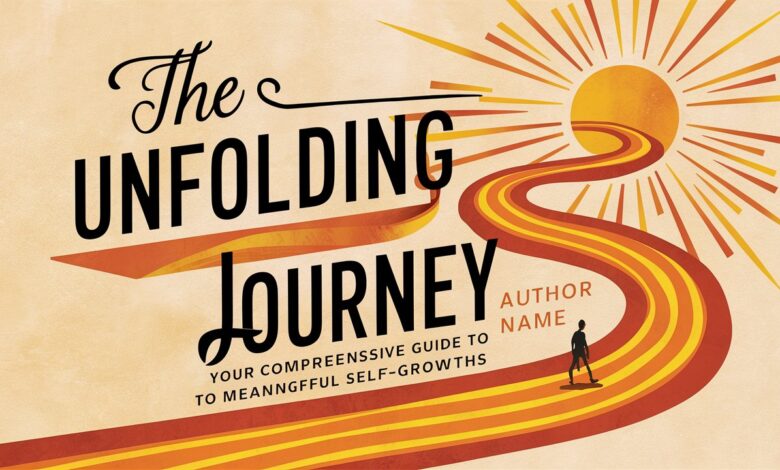The Unfolding Journey: Your Comprehensive Guide to Meaningful Self-Growths

Introduction: Embracing the Expansive Landscape of Potential
Self-growths – often referred to as personal development or self-improvement – is not merely a trendy concept; it is the fundamental, conscious pursuit of evolving beyond our current state, unlocking latent potential, and crafting a more fulfilling, authentic, and capable existence. It signifies a deliberate commitment to becoming the best version of oneself, not as a distant destination but as an ongoing, dynamic journey. This journey is rarely linear or effortless; it demands introspection, courage, consistent effort, and a willingness to step outside comfort zones. Yet, the rewards – enhanced self-awareness, deeper resilience, expanded skills, richer relationships, and a profound sense of purpose – are immeasurable. This article delves into the core pillars of self-growths, providing a roadmap to navigate this transformative path, understand its essential components, and cultivate the mindset and practices necessary for sustained evolution. It’s about recognizing that within you lies an extraordinary capacity for change, learning, and flourishing, waiting to be consciously nurtured.
1. The Foundational Compass: Cultivating Deep Self-Awareness
The bedrock upon which all meaningful self-growths is built is Self-Awareness. This is the process of turning the lens inward to observe your thoughts, emotions, motivations, values, strengths, weaknesses, triggers, and behavioral patterns with honesty and curiosity, devoid of harsh judgment. It involves asking profound questions: What truly drives my decisions? Why do I react this way in certain situations? What are my core values, and am I living in alignment with them? What are my limiting beliefs? Developing self-awareness requires dedicated practices like mindfulness meditation, which trains you to observe your inner landscape non-reactively; regular journaling to untangle thoughts and identify recurring themes; actively seeking and thoughtfully processing constructive feedback from trusted sources; and engaging in reflective solitude. Without this deep understanding of your inner workings, efforts towards growth can become misguided, applying solutions to misunderstood problems or reinforcing unconscious patterns. Self-awareness acts as your internal compass, providing the clarity needed to identify the areas where growth is most authentic and impactful, guiding your choices and illuminating the path forward with increasing precision.
2. Shaping Your Reality: The Transformative Power of Mindset
Your Mindset – the collection of beliefs and attitudes shaping how you interpret experiences and respond to challenges – is the powerful engine driving your self-growths journey. Central to this is embracing a Growth Mindset, a concept pioneered by psychologist Carol Dweck. This mindset thrives on the fundamental belief that abilities and intelligence are not fixed traits but can be developed through dedication, effort, effective strategies, and learning from setbacks. It views challenges not as insurmountable threats revealing inadequacy, but as exhilarating opportunities to stretch capabilities and acquire new skills. Conversely, a Fixed Mindset perceives abilities as static, leading to avoidance of challenges (for fear of failure proving incompetence), defensiveness towards feedback, and a tendency to give up easily when obstacles arise. Cultivating a growth mindset involves consciously reframing self-talk (replacing “I can’t do this” with “I can’t do this yet“), celebrating effort and process over just outcomes, viewing criticism as valuable data for improvement, and drawing inspiration from the success of others rather than feeling threatened. This mental shift unlocks resilience and fuels the perseverance essential for tackling the inevitable difficulties inherent in profound self-growths.
3. The Architecture of Daily Evolution: Building Empowering Habits
Lasting self-growths is rarely achieved through sporadic bursts of monumental effort; instead, it is meticulously constructed through the consistent application of small, sustainable Habits. Habits are the automated routines and behaviors that shape our daily lives, consuming a significant portion of our actions. Understanding the Habit Loop (Cue -> Routine -> Reward) is crucial for both building new, beneficial habits and dismantling detrimental ones. To foster habits that support your growth, start exceptionally small (“atomic habits”) to minimize resistance and ensure consistency – commit to just five minutes of meditation, reading one page, or one healthy meal swap. Anchor new habits to existing routines (habit stacking: “After I brush my teeth, I will journal for 5 minutes”). Design your environment to make desired behaviors easier and unwanted ones harder (e.g., place fruits on the counter, put your phone in another room while working). Track your progress visually for motivation and accountability. Crucially, practice self-compassion when you inevitably miss a day; the key is returning to the routine without self-flagellation. Over time, these small, consistent actions compound, becoming ingrained and leading to profound, lasting transformation in your health, productivity, skills, and overall well-being, forming the very architecture of your evolving self.
4. Fueling the Inner Engine: Prioritizing Self-Care and Well-being
Neglecting your fundamental physical, mental, and emotional needs is akin to expecting a car to run on empty; sustainable self-growths is impossible without a foundation of robust Self-Care and holistic Well-being. This pillar is far more than occasional indulgences; it’s a non-negotiable commitment to nurturing your whole self. It encompasses prioritizing sufficient, quality Sleep, which is vital for cognitive function, emotional regulation, and physical repair. It involves nourishing your body with wholesome foods that provide sustained energy and support brain health. Regular Physical Activity is paramount, not just for fitness, but for reducing stress, boosting mood, enhancing focus, and building discipline. Equally important is proactive Stress Management through techniques like deep breathing, yoga, spending time in nature, or engaging in hobbies. Setting and enforcing healthy Boundaries to protect your time, energy, and emotional space is a critical act of self-care. Neglecting these areas leads to burnout, diminished resilience, impaired decision-making, and a significant drain on the motivation and energy required for growth. View self-care not as selfish, but as the essential maintenance required for your “inner engine” to perform optimally on your growth journey.
5. The Lifelong Expansion: Commitment to Continuous Learning
The landscape of knowledge, skills, and the world itself is constantly evolving; stagnation is the antithesis of self-growths. Embracing Continuous Learning is the commitment to being a perpetual student of life, actively seeking new knowledge, perspectives, and competencies. This involves cultivating deep intellectual Curiosity – asking questions, exploring unfamiliar subjects, and challenging your existing assumptions. It means stepping beyond the confines of your Comfort Zone to acquire new skills, whether professional (learning a new software, taking a course), practical (cooking, basic repairs), or creative (playing an instrument, painting). Engage with diverse viewpoints through reading widely, listening to podcasts, attending lectures, or having conversations with people from different backgrounds. Seek out Feedback consistently, not as a judgment, but as invaluable data for improvement. Dedicate regular time for learning, whether it’s 30 minutes of reading daily, online courses, workshops, or mentorship. Continuous learning keeps your mind sharp, adaptable, and open, fuels innovation and problem-solving, enhances confidence as you master new things, and ensures your growth remains dynamic and relevant in an ever-changing world, preventing obsolescence and fostering a vibrant, engaged mind.
6. Weathering the Storms: Cultivating Resilience and Adaptability
The path of self-growths is inevitably punctuated by setbacks, failures, disappointments, and unforeseen challenges. Resilience is not about avoiding these difficulties; it is the indispensable capacity to navigate through them, adapt, recover, and even emerge stronger. It’s the mental and emotional muscle that allows you to bend without breaking. Building resilience involves reframing Failure not as a defining endpoint, but as an inevitable and invaluable source of feedback and learning – a necessary stepping stone on the path to mastery. It requires developing healthy coping mechanisms for stress and adversity, such as mindfulness, seeking support, or engaging in physical activity. Fostering Self-Compassion is critical; treating yourself with the same kindness and understanding you would offer a friend during tough times, rather than succumbing to harsh self-criticism. Cultivating Optimism (a realistic belief that things can improve) and focusing on aspects within your control (“What can I do right now?”) are key resilience strategies. Furthermore, Adaptability – the ability to adjust your goals, strategies, and perspectives in response to changing circumstances – is crucial. Rigidity hinders growth; flexibility allows you to pivot, find alternative routes, and thrive amidst uncertainty, making resilience and adaptability the essential armor for your ongoing journey.
7. The Interwoven Thread: Fostering Meaningful Relationships and Community
While self-growths is deeply personal, it does not occur in isolation. Humans are inherently social beings, and the quality of our Relationships profoundly impacts our development and well-being. Nurturing healthy, supportive, and authentic connections is a vital pillar. This involves honing Communication skills – learning to express yourself clearly and assertively while practicing deep, empathetic listening. Seeking and offering Support creates a vital reciprocal network; sharing vulnerabilities and challenges fosters trust and allows others to help, while supporting others strengthens your own sense of purpose and connection. Surrounding yourself with individuals who inspire you, challenge you constructively, and believe in your potential (Community) provides invaluable encouragement, accountability, and diverse perspectives. Conversely, it requires the courage to establish boundaries with, or distance yourself from, relationships that are draining, toxic, or inhibit your growth. Investing in positive relationships provides emotional sustenance, reduces stress, offers different viewpoints that challenge your thinking, and reminds you that you are not alone on this journey. They are the mirrors reflecting our growth and the hands that help us up when we stumble.
Conclusion: Your Unique and Unfolding Masterpiece
Self-growths is not a race with a definitive finish line, nor is it a competition against others. It is a deeply personal, lifelong expedition of discovery, refinement, and expansion. It demands patience, unwavering commitment, and consistent action, fueled by the pillars of self-awareness, a growth-oriented mindset, empowering habits, foundational self-care, continuous learning, resilient adaptability, and nurturing relationships. There will be days of exhilarating progress and periods of frustrating plateau; moments of profound clarity and times of disorienting doubt. Embrace it all. Celebrate the small victories – the new habit stuck, the challenging book finished, the difficult conversation navigated, the setback overcome with grace. Be gentle with yourself during the stumbles; they are not failures but data points on your unique map. Remember that your journey is yours alone; avoid comparing your chapter one to someone else’s chapter twenty. Focus on consistent, compassionate effort. By consciously engaging with these interconnected aspects of growth, you actively participate in the ongoing creation of your most authentic, capable, and fulfilled self. Start where you are, use what you have, do what you can, and trust that each step, however small, is weaving the tapestry of your remarkable and ever-unfolding masterpiece. The journey is the destination.
Frequently Asked Questions (FAQs) about Selfgrowths
- Q: I feel overwhelmed; where do I even start with self-growths?
A: This is very common. The key is to start incredibly small and focus on just one thing. Overwhelm often comes from trying to change everything at once. Based on your self-awareness, identify one small habit you can build (e.g., drinking a glass of water first thing in the morning, journaling for 5 minutes before bed, taking a short walk) or one area of self-care you can improve (e.g., setting a consistent bedtime). Master that tiny step first. Consistency with a small action builds momentum and confidence far more effectively than sporadic attempts at massive change. Celebrate sticking to that small commitment. - Q: How do I stay motivated when progress feels slow or I face setbacks?
A: Relying solely on motivation is unreliable; it fluctuates. Instead, focus on building discipline (doing it even when you don’t feel like it) and systems (your routines and environment). Track your progress visually (e.g., a habit tracker) to see consistency over time, even if the results aren’t immediately obvious. Reconnect with your deeper “why” – your core reasons for pursuing growth. Practice self-compassion when setbacks occur; acknowledge the difficulty, learn from it without self-blame, and gently recommit. Remember that setbacks are part of the process, not the end of it. Focus on effort and process, not just the end goal. - Q: Is self-growths selfish? Shouldn’t I focus more on others?
A: Authentic self-growths is fundamentally not selfish; it’s foundational. Think of the airplane oxygen mask analogy – you must secure your own mask before assisting others. By investing in your own well-being, resilience, skills, and emotional health, you become far more capable, present, patient, and resourceful for the people and causes you care about. You have more energy, empathy, and genuine capacity to contribute positively to others and the world. Neglecting your own growth can lead to resentment, burnout, and diminished ability to truly support others. - Q: How do I deal with fear of failure or stepping outside my comfort zone?
A: Fear is a natural human response to the unknown and perceived risk. Acknowledge the fear without letting it paralyze you. Reframe failure as learning and a necessary step towards mastery. Start by taking small steps outside your comfort zone – the discomfort is where growth happens, but it doesn’t have to be a giant leap. Visualize success, but also visualize yourself handling potential setbacks calmly. Focus on the potential gains of trying (learning, resilience, new experiences) versus the guaranteed stagnation of staying put. Practice self-compassion; it’s okay to feel scared. Courage is acting despite the fear. - Q: How do I measure progress in self-growths? It often feels intangible.
A: While some goals are quantifiable (e.g., running a faster mile, learning 50 new vocabulary words), much of self-growths is qualitative. Look for subtle shifts: Improved emotional regulation in stressful situations, greater awareness of your reactions, increased consistency with a habit, feeling slightly more confident in a previously daunting scenario, seeking feedback more openly, setting a boundary successfully, showing more patience, or a general sense of increased well-being. Regular journaling is invaluable for noticing these internal changes over time. Reflect periodically: “How do I handle challenges differently now compared to 6 months ago?” Progress is often felt internally before it’s seen externally. - Q: Is it too late for me to start focusing on self-growths?
A: It is absolutely never too late to embark on or deepen your self-growths journey. Neuroplasticity – the brain’s ability to form new neural connections – persists throughout life. The desire to learn, evolve, and live more authentically can arise at any age or stage. Starting later can even bring advantages like greater self-awareness, life experience, wisdom, and clarity about what truly matters to you. Focus on the present moment and the steps you can take now. Your future self will thank you for beginning, regardless of your starting point. The best time to start was yesterday; the second best time is today.



